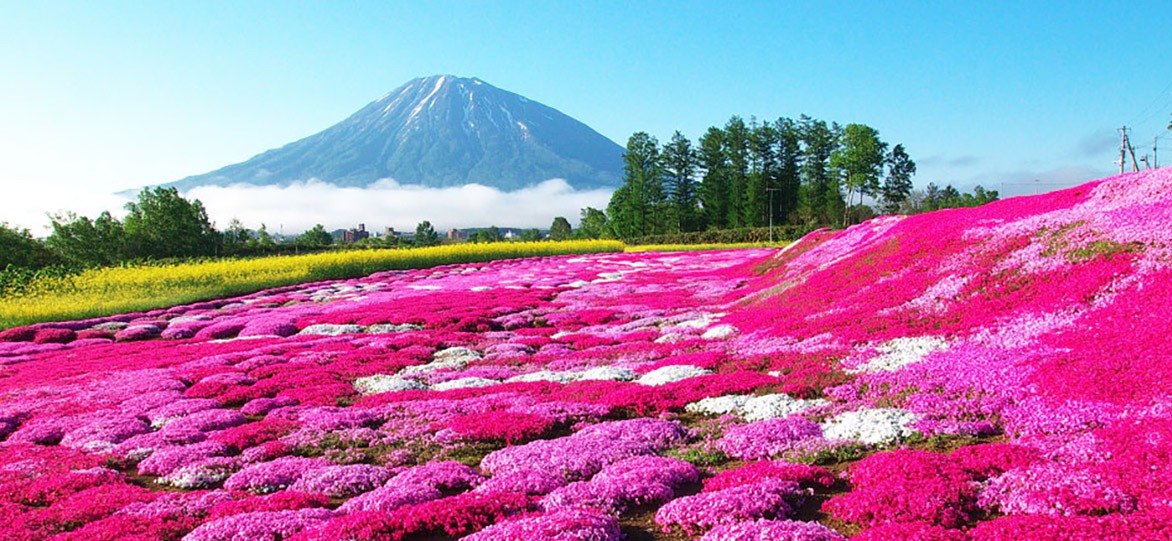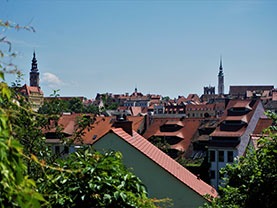
Hokkaido University
Sapporo, Japan
Program Facts
Program Type: Exchange
Credit Type: Transfer Credit
Terms Available: Academic Year , Spring
GPA: 3.0
Class Eligibility: Junior , Senior
Program Open To: UA Students
Language of Instruction: English
Application Deadline: Academic Year: January 20 , Spring: October 1
Coordinator: Nicole Staab
Explore Hokkaido University
The Hokkaido University Short-Term Exchange Program (HUSTEP) is a ‘junior year abroad’ type program designed to provide undergraduate students from affiliated universities with the opportunity to study in Japan at Hokkaido University. Participants in this program take a wide variety of classes offered in English in the fields of Culture and Society, Environment, Science and Technology. Students also have the chance to study the Japanese language. In addition, some participants can pursue independent study research under the guidance of a faculty member. There will also be an opportunity to take part in numerous traditional and contemporary Japanese cultural activities. Students admitted to the program are eligible to apply for a scholarship.
- HUSTEP Entry Requirements: Applicants must:
- have completed at least two years of undergraduate study at their own university prior to arrival in Japan.
- have a cumulative grade point average (GPA) of 3.0 or better on a 4.0 scale, or equivalent.
- be in junior or senior year at the time of participation
- Our agreement with Hokkaido University is a departmental agreement, and therefore our students can not apply for the JLCSP program.
You can view a full list of courses offered in the HUSTEP program here: Fall Courses Spring Courses
Fall Courses
Japanese Studies
Introduction to Japanese Studies II (Culture)
This course introduces you to an anthropological perspective on Japanese culture. We will explore various ways in which anthropological knowledge has been summoned to examine and interpret Japanese society. Topics include colonialism, kinship, value, power, gender, fieldwork, and ethnography. Non-Japanese materials will be included as well for eliciting cross-cultural, comparative awareness.
Spring Courses
Education
Approaches to Second Language Teaching
This course provides an overview of the theoretical and practical issues involved in the teaching of a second or foreign language (L2). The theoretical and empirical perspectives are integrated with practical experiences. As such, preparation and execution of micro-teaching practice sessions based on teaching approaches, as well as presentations on the ideas behind those teaching approaches, are important parts of the course. The knowledge gained in this course is applicable to the teaching of any language. However, as English is the shared language of the classroom, examples will be in the context of L2 English teaching. Students may choose to do projects and presentations on L2 Japanese teaching or other language teaching, provided that the content is at the most basic proficiency level.
Engineering
Introduction to Inorganic Materials Science
Ceramics and glass materials are used in several applications, from creating cellular phones, radio, television, and lasers to its role in medicine for cancer treatments and restoring bones, etc. The course aims have been designed to introduce the student to many of the current applications of ceramics and glass materials. Basics scientific concepts like atomic structure and physicochemical properties will be studied to lead the student to understand how these materials function.
Japanese Studies
Introduction to Japanese Studies II (Culture)
This course introduces you to an anthropological perspective on Japanese culture. We will explore various ways in which anthropological knowledge has been summoned to examine and interpret Japanese society. Topics include colonialism, kinship, value, power, gender, fieldwork, and ethnography. Non-Japanese materials will be included as well for eliciting cross-cultural, comparative awareness.
Japanese History (Theory and Practice) I
How do historians formulate, research and write up their projects? If you are interested in taking a practical, hands-on class that engages with these questions then please consider taking this course. The first two weeks provide an overview of the discipline of history, including some of the main methodologies used by historians. Week 3 to week 8 focus on how to research and write a literature review of relevant secondary research (the work other scholars have written about a topic). Week 9 to week 15 explore how to find and analyse different kinds of primary sources (records created at the time of the historical moment under consideration). Most of the examples used in the class will be drawn from the field of modern Japanese history. This course is highly recommended if you are an MJSP student who is intending to write a project study about a historical topic.
Science
Integrated Science II
The objective of this course is to let any student, regardless of his and her major, to learn wide and rich scientific knowledge and to be a well-educated person. It is expected that students will establish scientific literacy on various natural phenomena and be able to deal with the scientific aspects of problems in public debate.
Location
Compared to other parts of Japan, the island of Hokkaido is particularly blessed by nature. In addition to a World Heritage Site, Hokkaido also has six national parks, a World Geopark, five quasinational parks, and 12 nature parks. The total area of these parks is approximately 870 thousand hectares, making up approximately 11% of the entire area of Hokkaido (excluding the Northern Territories). Hokkaido also boasts a total of 12 wetlands attracting a vast array of birdlife. Covered with approximately 70% forest, an area which accounts for roughly one quarter of the national total, Hokkaido’s rich forests are representative of Japan’s wooded areas.
Good to Know:
LGBTQ+ Equality Index rating: Japan rates 55/100 (with 100 being the most equal) on Equaldex’s LGBTQ+ Equality Index.
Global Peace Index rating: Japan ranks 9/163 in the Global Peace Index. The lower the score, the more peaceful the country.
Languages spoken: Japanese
Housing
The accommodation available at Hokkaido University is one of the many advantages of studying there. They offer a greater number of places in university owned accommodation. There are a total of 642 rooms available, all of which are within walking distance of the university campus and equipped with free high-speed internet access.
Each dormitory is different in price and design and with such a variety of options it is difficult to convey fully their range and atmosphere, but we hope that this website will provide you with enough information to begin to consider the type of accommodation you require. All our dormitories are itemized on the website, offering information on type, price and location. You will also find other important information about accommodation, in particular our guarantor system.
Semester Dates
- This program may require a quarantine upon arrival in Japan
- Please check the HUSTEP program calendar for the most accurate program dates.
Semester Cost
- $50 Study Abroad Application Fee
- Mandatory Geo Blue International Health Insurance at a rate of $3 a day (approximately $360 a semester)
- You pay Main Campus UA Tuition & Fees to do an exchange and receive all of the financial aid you use on main campus.
- To learn more about how financial aid is applied to studying abroad, please see the official OSFA website.
- Other estimated costs include but not limited to housing, transportation (air & local), visa, meals, books and supplies
- UA Study Abroad scholarships are available based on eligibility
Request More Information
Please enter your contact information and a member of the Study Abroad team will contact you.










